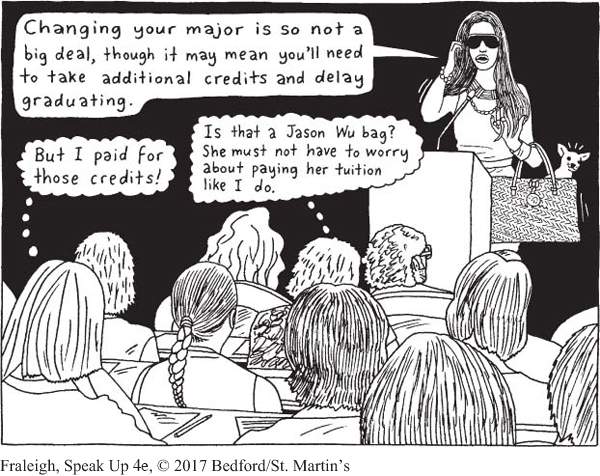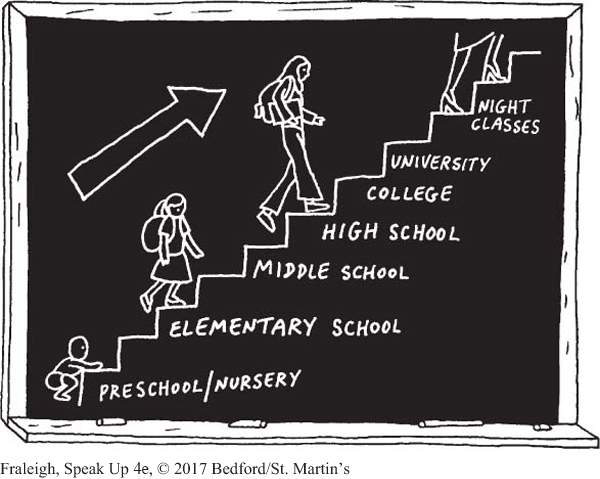Socioeconomic Background
Related to but distinct from questions surrounding demographic characteristics such as race, religion, and political affiliation are those that concern the social and economic background of an audience member or group. Socioeconomic status is a measure of where individuals stand in relation to other people in terms of financial resources, education, and occupation. As a speaker, it’s important to consider your audience’s socioeconomic status and how it might influence their individual and collective concerns. For example, in the 2012 presidential election, both Barack Obama and Mitt Romney recognized that middle-
136
Financial Resources. It is likely that the experiences of people who come from wealth and privilege will be different from those who are poor and have fewer resources and options. For this reason, a person who has always been financially comfortable may have very different concerns than a person who is struggling financially. A speech extolling the benefits of using online coupon sites like Groupon and Living Social, for example, might be of more interest to a lower-
137
Negotiating your path through assumptions about socioeconomic status can be tricky business: labels like rich, poor, and middle class are relative terms that carry little real meaning. You can, however, analyze your audience to get an idea of their collective economic status. For example, for a speech focused on whether it was ethical and appropriate for regents of the state university system to increase student tuition, Eleanor considered the following facts: many of her classmates had attended community colleges before transferring to the four-

Education and Occupation. Your audience’s level of education and occupation also can influence their reaction to your speech. For example, suppose many of your listeners are already familiar—
Consider the story of Roy, a civil engineer responsible for civic projects, such as building new bridges and highways. To get approval for his projects, Roy often made presentations about zoning issues to a civilian commission. While doing careful analysis of his audience’s educational backgrounds, Roy realized that the commission members actually knew very little about the necessary zoning issues. They lacked formal training in zoning, and because they served only brief two-
Listeners who lack background in your subject might also benefit from presentation aids that clarify the points you’re making. Carefully repeating your main points also can help your audience members understand your presentation by giving them time to absorb and process the information.
138
